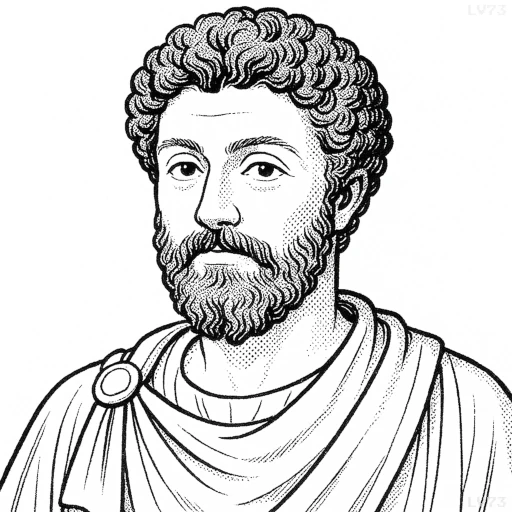“Death is a release from the impressions of the senses, and from desires that make us their puppets, and from the vagaries of the mind, and from the hard service of the flesh.”

- April 26, 121 – March 17, 180
- Roman Empire
- Roman Emperor
table of contents
Quote
“Death is a release from the impressions of the senses, and from desires that make us their puppets, and from the vagaries of the mind, and from the hard service of the flesh.”
Explanation
In this quote, Marcus Aurelius presents death as a liberation from the constraints and sufferings of the physical body and the turbulent desires of the mind. According to Stoic philosophy, the senses and the physical body often lead us into attachments, addictions, and desires that distract us from virtue and reason. The mind, driven by fluctuating emotions and whims, can also become enslaved by irrational thoughts and vices. Death, then, is seen as a release from these earthly burdens—the endless demands of the body and the chaotic impulses of the mind. It is not to be feared, but accepted as a natural transition that ends the cycle of suffering.
Aurelius, who lived under the pressures of ruling an empire while practicing Stoic philosophy, often contemplated death not as an end, but as a natural process of the universe. For him, the key to living well was not in avoiding death, but in transcending the grip of the senses, the distractions of the flesh, and the uncontrolled desires of the mind. In modern life, this perspective encourages us to reflect on the transitory nature of life and to focus on what is truly important—virtue, wisdom, and the mastery of our own thoughts and actions.
In practical terms, this quote encourages us to cultivate self-discipline and detachment from the sensory world. By recognizing the fleeting nature of our physical desires and the unpredictability of our thoughts, we can free ourselves from the constant pull of external distractions and internal conflicts. Instead of being driven by pleasure, pain, or the demands of the body, we can focus on what truly defines us: our ability to live in accordance with reason and virtue. Ultimately, by embracing the acceptance of death as a release from these limitations, we find greater peace and clarity in our lives.
Would you like to share your impressions or related stories about this quote in the comments section?



